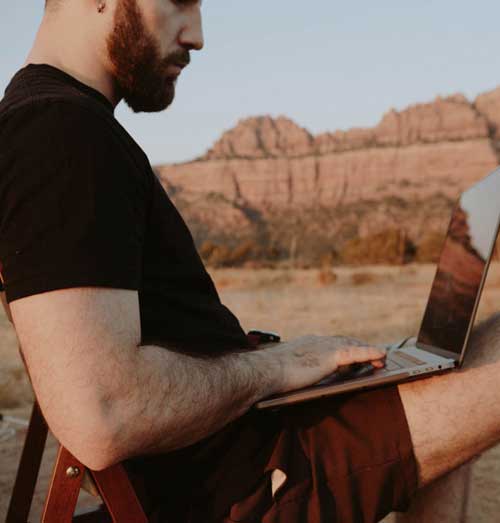What happens if a guest damages your short-term rental and they booked through Booking.com? Good news: they now offer host protection. But it’s not as great as it sounds…
In this episode, we break down the truth behind Booking.com’s new damage policy, what’s covered, and why you still might want to stick with deposits.
5 Key Takeaways:
• The Damage Policy Breakdown: Booking.com now offers a host damage protection program, but it’s filled with fine print and limitations.
• Deposits vs. Damage Program: Learn why collecting a deposit might offer stronger protection than relying on Booking.com’s mediation process.
• The Shocking Fine Print: Discover what’s not covered—like extra cleaning, pet damage, smoking, or even rule violations.
• How to Set It Up (Step-by-Step): A walkthrough on how to activate the damage policy within the Booking.com extranet settings.
• Our Recommendation After 50,000 Guests: Hear why Tim and his expert team still favor deposits and what evidence you can’t use in a damage claim.
This episode is a must-listen for any host using, or considering, Booking.com. Knowing how to protect your rental can save you thousands and major headaches.
Resource Links:
Check out our videos on YouTube: https://www.youtube.com/@ShortTermRentalRiches
Grab your free management eBook: https://strriches.com/#tools-resources
Looking to earn more with your property (without the headaches)? Chat with our expert management team: https://strriches.com/management-services/
What actually happens if a guest wrecks your property and they came from booking.com, what protections do you have and when is booking.com really going to step in and help you out?
Booking.com finally has a way to protect hosts. But most people do not know that this exists, and most people definitely do not know the fine details.
Welcome back to the Short Term Rental Riches podcast. I keep talking about booking.com.
I know booking.com, booking.com. Tim’s always talking about booking.com, but the reality is you should have your properties on there and I understand the hesitation. A lot of you have heard the horror stories. You’ve had potentially some bad things happen. I know I have as well. If you missed our story about the felon that didn’t leave one of my properties, we’ll head over to tr riches.com and check out that episode.
The reality is you need to be on there. But yes, it’s not the easiest site to use. They have a lot of policies and this new damage program has a lot of little fine detail that we’re gonna break down today. So stay tuned. Let’s jump right into it.
So let’s just cut right to the chase. Yes, you should definitely a hundred percent be on booking.com. It doesn’t matter if you have a vacation rental on an island somewhere. If you have a property on the 30th floor in New York, or if you have a cabin out in the woods, 20 miles. From the nearest property, booking.com has a lot of opportunity and you can earn quite a bit if you know how to work their platform.
One of the big issues, one of the big hurdles though, is damage. And so yes, you wanna be on there, but yes, you want to protect yourselves. So let’s dive into it. We’ve talked a lot before that you should have a deposit, but now we have the option to use booking dot com’s damage policy.
Which one should you use? Let’s recap real quickly, the deposit strategy.
In a nutshell, if you’re on booking.com and you’re collecting deposits, well then you have to collect them all yourself. Most people use Stripe for this. If you’re using Stripe, well then there’s a seven day authorization hold. That means if you have a reservation that’s eight days. You have to authorize that deposit again, and if there is an issue with the property, then you are working that out directly between you and the guest.
booking.com is not involved at all. And if the guest doesn’t like how you worked things out, well, they very likely could go to the credit card company and they might request a chargeback.
Another thing that guests don’t like is that they have to put an authorization on their credit card, and depending on the property, this might be a large amount of money.
So that’s the deposit side. We’re gonna let you know which one we prefer, but first let’s jump into booking dot com’s new damage program.
How does their program work in a nutshell? Well, there is no damage collected. If there is damage, then booking.com is going to facilitate that payment between you and the guest.
But there’s a lot of minute details here. One of those is that if you file a claim and the guest does not accept it, well then it’s not guaranteed that that payment will be made.
One thing that might keep you from using their program right off the bat is that there is a max deposit amount. That amount is a thousand dollars, but it does depend on the city and on the country. So you want to double check that. Let’s go ahead and jump into how to actually set this up, and then I’m gonna go through that fine print ’cause there’s some really important pieces that you don’t wanna leave out here. And then lastly, I’ll give you our honest opinion. Should you be using the program or should you stick with deposits?
If you’re tuning into the audio only episode, well, please know you can find us at short-term rental riches on YouTube.
I’m gonna walk through a screen share of all of these little details that you want to know, important details and also how to get set up. And so I hope that you can follow along. Okay. I’m really just gonna be reading off my notes here ’cause there’s quite a bit of important details.
Also kudos to Nikki on our team that set up this whole summary for me. As you know, we manage lots of other properties and we have an amazing team of 20 people now full-time helping you operate your property with less headache and helping you earn more money. If you want to chat with our team, you can head to str riches.com.
We can set up a quick meeting, see if your property fits with our program.
Okay. So getting right into it, I’m here under booking.com and I just created a test property to walk you through this process. The title of that test property? Yes. Tim’s coolest property ever. And when you’re in the extranet, this is booking dot com’s internal site for host.
You could think of it that way. You have a property tab under property. You’re gonna go down to policies. You click on that.
Once you’re in policies, you’re gonna scroll down and there is a damage policy option section.
By default, it’s going to be marked. No, but you want to click yes. Does your guest pay a damage deposit even though you’re not potentially charging them a deposit? And then it’s gonna give you the option to set up their damage program. So, yeah, a little sneaky and not super intuitive to find.
Right below that, you’re gonna have a spot to enter the max amount that you can for the property, which is currently a thousand dollars. Make sure you check your local city or local country. I’m gonna go with a thousand dollars because again, because this isn’t a deposit that’s actually coming out from our guests, so it just helps us have a little more protection if booking.com jumps in and helps cover our property.
So we will go ahead and click agree to the terms. Right below that, there’s gonna be a spot to enter the max amount for your property. Now, this varies by property. We have some properties that we were allowed to put up to a thousand dollars.
But on my test property here, they’ve maxed me out at three 40, so you’ll just have to test this out. I recommend going with whatever maximum they allow, because again, this money isn’t coming off their credit card. It’s just there in the policies to let the guests know that they could be charged up to that amount.
Okay, so with the damage policy turned on and our maximum in there, let’s look at the fine print here. So we know the overview. The guests don’t pay you a damage deposit. This is something that they can see. They might be charged. They’re only gonna pay if they cause damage during their stay, which has to be agreed on by both of you.
If there is some sort of damage, well, you’re going to submit a request within 14 days. This is similar to how you might do it on air cover, where you’re basically gonna collect your evidence, you’re gonna submit it into booking.com. They’re gonna notify the guest, they’re gonna be that mediator, and they’re gonna help resolve that issue between you and the guests.
So what do guests actually see on their end? Well, they’ll see this little damage policy that pops up, and you’ll see if you cause damage to the property during your stay, you could be asked to pay up to a thousand dollars. Just depends on the property, again, after checkout, according to this property’s damage policy.
So let’s get into the fine print.
The first piece here that you want to pay extra special attention to is this word guarantee. However, this is booking.com speaking. However, we can’t guarantee payment, and you’ll only receive payment if the guest agrees to pay.
Not very reassuring. Is it,
we talked briefly about how the program actually works. Basically, if there’s damage, then you submit a claim. booking.com will be the mediator.
We talked about how to set it up, which is really quite easy. Basically just go to the policy section, click yes and hit those couple buttons.
Okay, so let’s imagine that you have this set up and there happens to be some sort of issue. How do you actually submit the request? Well, you’re gonna log into the extra net. You’re gonna go to your reservations option and select the reservation where the damage occurred. Click make a damage payment request, and then you’re gonna have to provide evidence
And then go through that process with booking.com.
Okay, so here’s some of the juicy stuff. What can I ask guests to pay for? This is really important. Remember, if you’re collecting a damage deposit, then you have full reign. You can ask whatever you feel is fair as long as it’s in your rental agreement, so things that you can’t ask for. Damage the furniture or electronics.
Those types of items are pretty much fair game, but what you cannot ask for are routine cleaning things. So let’s say your property’s overly dirty, which we know a lot of times it could be, depends on the type of property you have. If you’re in Nashville and you’re hosting bachelorette parties, then uh.
You probably get some glitter from time to time, and that takes a long time to clean up. You would not be able to cover that under this policy, whereas you could with your deposit as long as you have it in your rental agreement. They’re also not covering non-physical damages.
And you might be asking, why would I even charge someone for something? That I can’t physically see. Well, you might be forgetting about smoke. Remember, a lot of people might smoke in your property and they’re not gonna cover it here. Again, if you have a damage deposit, you can, and how you’re gonna want to do that is first, make sure it’s in your rental agreement so that you’re allowed to charge for it.
And then you could also use devices like Minute or Noise Aware that can now detect smoke. You wanna have some evidence, and then the best thing to do is to find physical evidence there. So maybe those are cigarette butts. Maybe use your housekeeper, found some ashes. You wanna take pictures of that and sit it in.
But with this damage policy, they’re not going to be covering that. They’re also not gonna cover anything that actually goes around your house rules. I know that sounds crazy, but let’s say you have a no pet policy and they bring a pet. Well, they’re not, they’re not gonna recoup money for you there.
Whereas you could, if you have a damage deposit and it clearly says we charge a hundred dollars per pet, then you can charge ’em that.
So we know that a lot of these damage claims come down to how good our evidence actually is, and the unfortunate thing with booking dot com’s damage policy. As you can’t really submit good evidence. For example, you can’t use security video footage, and now we don’t record anything in our properties. But let’s use that pet example.
Let’s say someone showed up with a pet and you have a video camera showing the entrance of your property, and they’re clearly entering with a pet. Well, if you’re using the deposit, you could submit that as evidence, but they don’t accept that under their damage policy.
Another thing that they won’t accept as evidence. And this is just gonna blow your mouth. This is gonna sound crazy, but you can’t send screenshots of your conversations with them. And so if a guest said, yes, I brought an enamel to your property and I knew that I couldn’t.
Clear evidence, you could not send that to ’em. Kind of crazy, right?
So we talked a bit about what they cover, what they don’t cover, how to submit evidence. How do you actually check the status of your damage payment request? Well, you sign into the extra net again, you go to your rev reservations tab, select the reservation that you submitted it on. And then you’ll have a little damage payment request status button there where you can check it.
Let’s say you go through all this and you get it approved. Well, it could take up to 30 days for you to receive payment, which booking.com is going to facilitate.
If you’re using booking dot com’s payments, payments by booking dot com’s, well then there’s actually a cap on the amount that you can request for this damage policy. And it’s only $300 or $300 of your local currency. If you happen to be in England, then it might be, then it would be 300 British pounds.
But if you go under the terms and conditions, it says there’s a limit of a thousand dollars. So again, we’ve added that to a lot of our properties. It shows up in the text. I suggest that you add the biggest limit that you can, knowing that it’s not that big and the guest doesn’t have to actually. Paid out of pocket.
When they make a reservation, it’s gonna help deter less guests.
So that sort of wraps it up. It doesn’t sound too fantastic, does it? And so what is our opinion again? After managing over 50,000 guests and we get a lot of reservations from booking.com, not just in urban or hotel type properties, but in vacation rentals as well. We opt for the damage deposit. So yes, it is a little more work, but it provides all these protections, right?
If someone leaves our property really dirty, then we want to charge them an extra cleaning fee. That’s just fair right now. I know if you’re out there and you’re like, ah, I don’t want to deal with booking.com, this is a lot of work. There’s a lot of fine print. Well, we would love to do that for you. We’ve been partnering with owners across the nation and in multiple countries.
Now we’re in over 24 cities and we have excellent, excellent results. You can head to sdr riches.com. There’s a little partner with us button, and we’d love to jump on a call, see if your property makes a good fit.
And if you want to jump on all this on your own, highly suggest that you go the deposit route. We have a lot of free resources on our website as well, like our free management ebook that’s packed with checklists and all the things that we do with each and every reservation.
We’ll leave a link below in the show notes, but you can also get that@striches.com.
So while it’s good news that booking.com has a new damage policy, they’re trying to compete with Airbnb, the reality is. It kind of sucks, right? So I hope these suggestions and these insights helped you save just a little bit of time, until next time, I hope you have a fabulous week.















